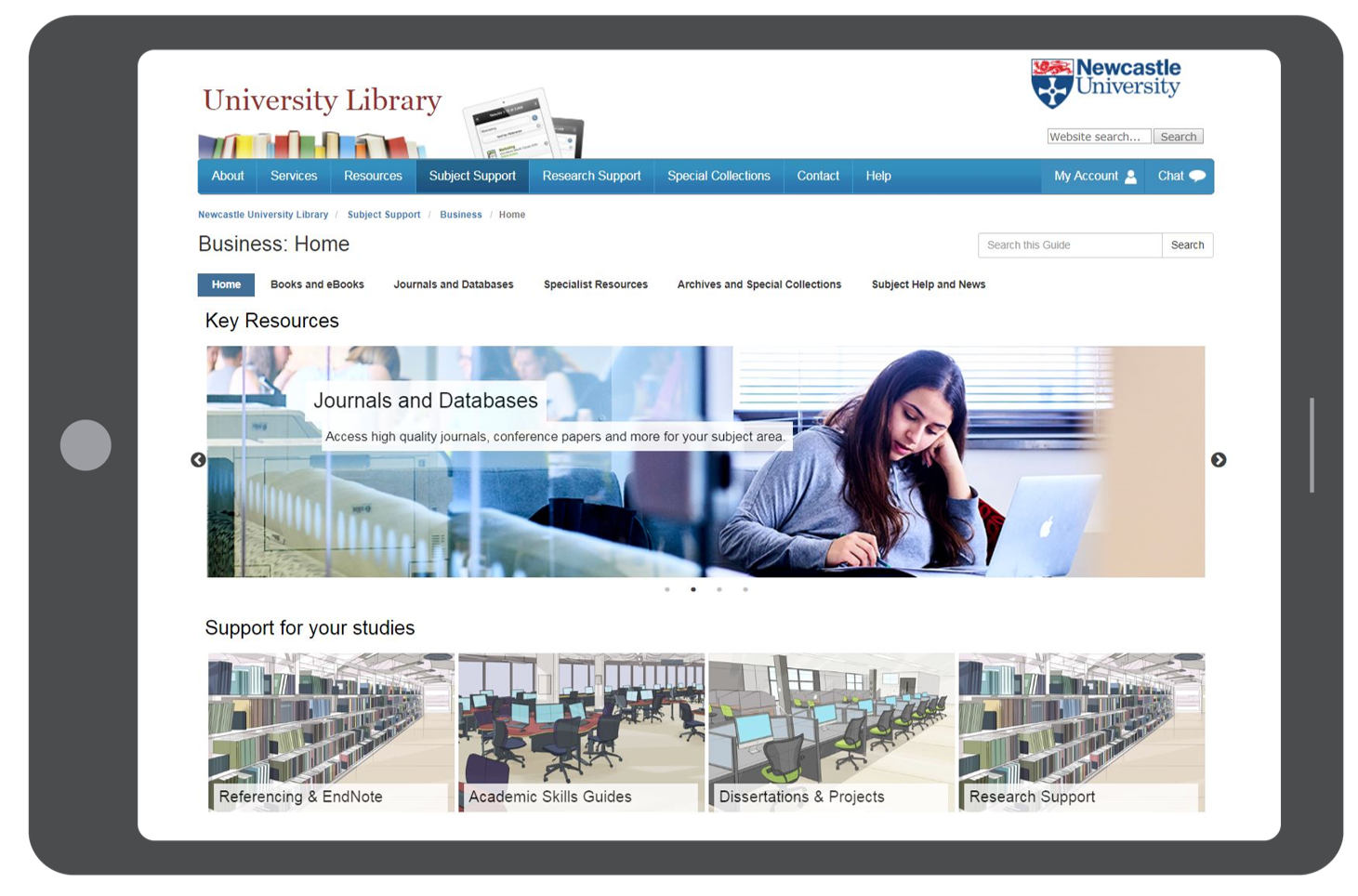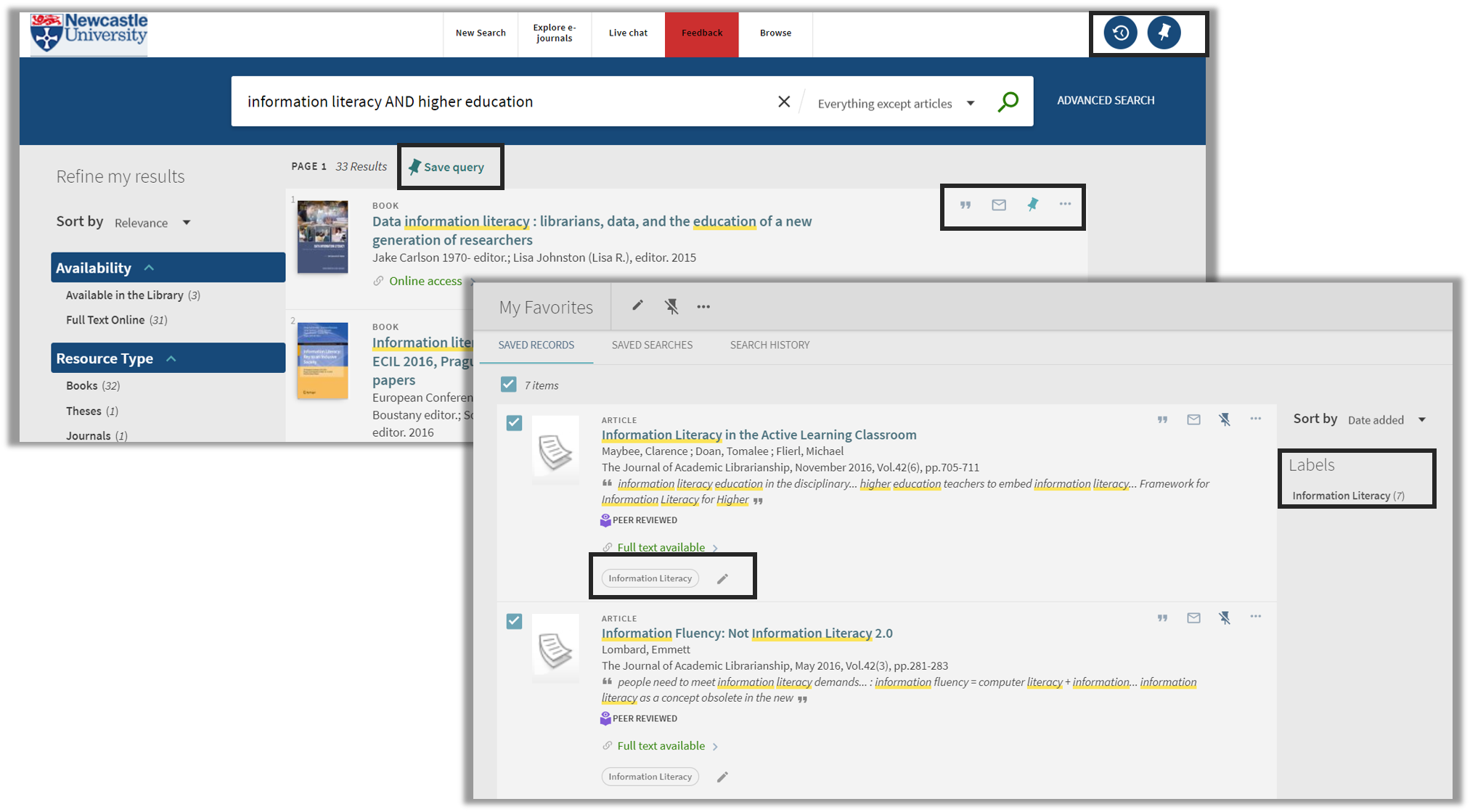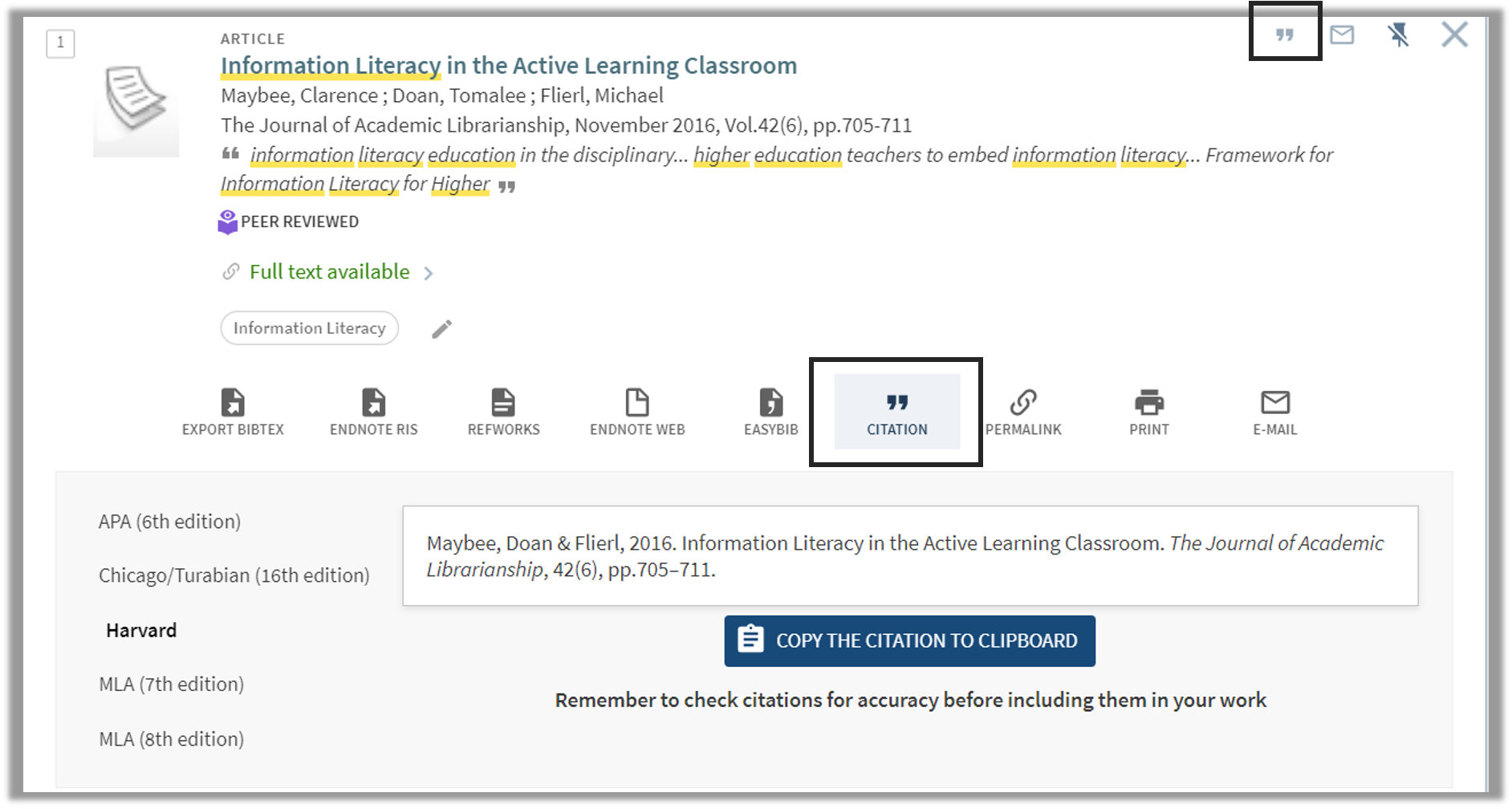
Today we are getting into the festive spirit in the Liaison team and enjoying our last day at work before the Christmas vacation. The team will be back in the office on 2nd January but until then, there is plenty of Library support available.
We are still open!
The Philip Robinson Library will be open throughout the vacation with the exception of Tuesday 25 December 2018 and Tuesday 1 January 2019. Between Saturday 22nd December and Monday 31st December, we are open as self-service and access the building is by Newcastle University Smartcard only.
Find out more on the Library website.
Live chat
If you have an urgent question, you will find 24/7 support via our out-of-hours Live Chat service, provided by a co-operative of academic librarians from around the world. If they can’t answer your query, they will pass it back to our Library staff who will contact you when full service resumes on Wednesday 2 January 2019.
Library Help FAQs
Believe us, there is no such thing as a stupid question and you’ll probably find that your question has been asked many times before! Why not check the Library Help FAQs to see if we have already provided an answer.
Visit your Subject Guide
Working on an assignment or revising, and unsure where to find the information you need? Visit your library Subject Guide for advice and quick links to specialist information resources for your subject.

Not in Newcastle? Online resources – any time, anywhere.
You can access all of our e-resources from anywhere in the world, so long as you have an internet connection. We wrote this blog post full of tips last week.





 A common mistake made in referencing is grouping all sources found online under the category and reference type of a website. Your aim should be to reference the information you have in front of you rather than where it was sourced. Simply grouping items found online as a website would be the equivalent of referencing a book by the publisher details rather than the author and title.
A common mistake made in referencing is grouping all sources found online under the category and reference type of a website. Your aim should be to reference the information you have in front of you rather than where it was sourced. Simply grouping items found online as a website would be the equivalent of referencing a book by the publisher details rather than the author and title. Harvard at Newcastle is the most frequently used referencing style and if your school does not have a preferred style, it is the the one that we would recommend. This is because there is the most comprehensive guidance available for Harvard and it is a style that can manage referencing all types of information. Whether you are referencing a book, news article, Instagram or market research, the Harvard at Newcastle style has got you covered.
Harvard at Newcastle is the most frequently used referencing style and if your school does not have a preferred style, it is the the one that we would recommend. This is because there is the most comprehensive guidance available for Harvard and it is a style that can manage referencing all types of information. Whether you are referencing a book, news article, Instagram or market research, the Harvard at Newcastle style has got you covered.